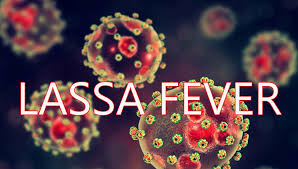The Nigeria Centre for Disease Control and Prevention (NCDC) has expressed concern over a resurgence of Lassa fever infections and deaths nationwide, citing the most recent data indicating a rise in both confirmed cases and fatality rates.
According to PUNCH News, the NCDC confirmed eight new cases in Ondo, Bauchi, Edo, and Nasarawa states in its Situation Report for Epidemiological Week 22 (May 26–June 1), which was made public on Friday. This represents a minor rise over the six cases that were reported the week before.
With 747 confirmed cases and 142 fatalities as of the first week of June 2025, the nation’s case fatality rate has risen to 19.0%. Compared to the 18.1% fatality rate observed over the same period in 2024, this represents a concerning increase.
The NCDC has identified Ondo, Bauchi, Edo, Taraba, and Ebonyi states as the epicenters of the current outbreak, which has spread to 18 states and 96 local government areas (LGAs). A startling 91% of all confirmed cases documented thus far in 2025 have occurred in these five states alone.
According to the NCDC’s statement, “this trend is concerning and underscores the need for continuous vigilance, public awareness, and adherence to prevention measures.”
Lassa fever, a viral hemorrhagic disease that is widespread in Nigeria and tends to increase during the dry season, is mainly spread by contact with food or household objects tainted by the urine or faeces of infected multimammate rats. Additionally, human-to-human transmission is possible, especially in medical facilities lacking adequate infection protection measures.
The disease’s persistence and spread, in spite of continuous public health initiatives, are a result of systemic issues with early identification, hygienic behaviours, and resource constraints in impacted areas.
The significance of early presentation at medical institutions, particularly in endemic areas, and the use of personal protective equipment (PPE) by healthcare personnel treating suspected cases are still being emphasized by health officials.
“To improve surveillance, case management, and risk communication, the NCDC is collaborating closely with state ministries of health, partners, and healthcare facilities,” the study continued.
The public is being advised to keep their surroundings clean, keep rodents away, store food appropriately, and notify the closest health facility as soon as they experience symptoms like fever, weakness, vomiting, or bleeding.
Health experts caution that if prompt action is not taken, containment delays and public apathy could result in an even more serious health problem as the rainy season goes on.







Leave a Reply